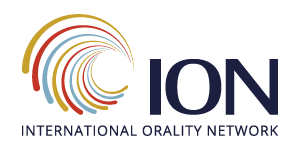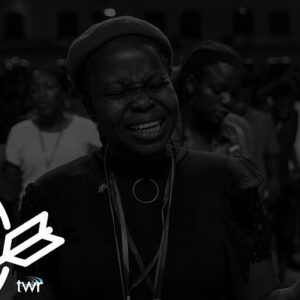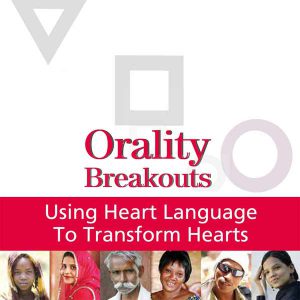The following is a chapter from the book ‘Orality Breakouts – Using Heart Language to Transform Hearts‘. A chapter will be posted here each week.
Chapter 14 – Lessons Learned: Orality in HIV/AIDS and Water Projects
By Bramuel Musya
Oral strategies at work
I have been involved with the development and implementation of oral strategies for ministry in East Africa for the last five years through an organization called Straight Path Resources. We have found that, if pursued strategically, oral strategies can be an effective means for the establishment and implementation of specialized ministry projects such as HIV/AIDS intervention, microbusiness creation, and water and sanitation projects. This chapter outlines some of our experiences, often in partnership with other ministries and corporate organizations, and introduces some of our most effective resources.
The case for orality in Africa
Education and technology continue to thrive in Africa, but many people are yet to be empowered to read and write. Others prefer not to read, even after investing many years in education. For many, education is only a means to a better job; it is not a way of life. Although Africa is a land of diverse cultures, Africans are united through a long history of transmitting information and cultural values through stories, song, dance, and other forms or oral communication. These methods of communication are part of the culture, a way of life. If we are serious about being effective gospel communicators and undertaking Bible-based development projects aimed at the transformation of the whole person in Africa, then we have no other alternative but to consider seriously this ancient way of engaging people.
Unfortunately, like many others in ministry, I was blind to this truth. Brought up by Christian parents and saved as a young man, I committed myself to ministry from an early age. I started by teaching in children’s church and later began preaching in adult services and crusades. I trained for ministry and my commitment to ministry deepened. But many years later I began to assess the impact of my ministry efforts. Yes, the Lord had done a great deal through our work, but my biggest concern was, How do I involve others in ministry to stop myself getting overwhelmed? Or worse, What if I become an expert and celebrity in ministry and take away from God’s glory? I had no satisfactory answer.
While traveling as a television producer in rural parts of Kenya, I had an experience that would forever change the course of my ministry. Rev. Eric Musee, East Africa Director for the Bible League,1 was with me. We had just arrived in a traditional Maasai homestead near the Oldonyo la Nkai (Maasai for “Mountain of God”). It was hot and dry with dust blowing from every direction as one local boy arrived from school. After a quick lunch and a glass of milk, he took out his bicycle, pumped up the tires, tied a huge Maasai Bible on the back seat, and rode off. Rev. Musee asked Bishop Keturai, the local leader, about the young boy. We learned that he was one of the very few in the community who could read. The local believers had mobilized resources through sales of their goats to buy the bicycle for the young man. Each day he would ride from one home to another to read the Bible to the growing number of believers who had a heartfelt desire for the Word. It was an inspiring story, but I had to ask myself, Is there no other way to disciple these people who cannot read?
Engaging oral resources
My research on other means of evangelizing and discipling non-reading communities brought me in contact with key leaders in the International Orality Network and other oral resource developers. Dorothy Miller, who heads up God’s Story Project,2 introduced me to the importance of using Bible stories chronologically. We started with the Bible video and audio resource God’s Story: From Creation to Eternity, a chronological journey from Genesis to Revelation in eighty minutes that uses key Old and New Testament stories.3 When the foundation is laid through Old Testament stories, it gives people a better understanding of Jesus when they reach New Testament stories.
 In traditional methods of evangelism, we led people to Christ using a few memorized verses from the Bible and our personal testimonies. But with this newfound resource, we discovered that evangelism could be done through the amazing stories of the Bible as the ultimate plan of God. When we began using God’s Story in the people’s mother tongue, we noticed how much they enjoyed it. They stayed to the very end and were open for discussion. They refered to the stories, instead of having to remember concepts, points, and memory verses. The concept took hold, and within one year our operational base in Nairobi was developing a vision for Africa. In Kenya, Uganda, Tanzania, Rwanda, Ethiopia, and Sudan, translation projects for God’s Story were initiated and African leaders recognized the importance of teaching Bible stories chronologically.
In traditional methods of evangelism, we led people to Christ using a few memorized verses from the Bible and our personal testimonies. But with this newfound resource, we discovered that evangelism could be done through the amazing stories of the Bible as the ultimate plan of God. When we began using God’s Story in the people’s mother tongue, we noticed how much they enjoyed it. They stayed to the very end and were open for discussion. They refered to the stories, instead of having to remember concepts, points, and memory verses. The concept took hold, and within one year our operational base in Nairobi was developing a vision for Africa. In Kenya, Uganda, Tanzania, Rwanda, Ethiopia, and Sudan, translation projects for God’s Story were initiated and African leaders recognized the importance of teaching Bible stories chronologically.
God’s Story is an effective evangelism tool, but there was soon a need for deeper teaching based on a similar oral model. We began using Simply the Story (STS),4 an oral teaching method that shows participants how to learn a Bible story, hide it in their hearts, and dig out spiritual observations and applications using questions. We taught this to church leaders at practical five-day workshops and they took it back to their communities. We also taught instructors how to share STS concepts.
Where there were very few literates, we embarked on another project that we called Timothy Church Planter Training. Nearly seventy stories are selected chronologically from the Old and New Testaments and recorded in the mother tongue of the target people group. We package these together with the God’s Story audio, also in the mother tongue, and make them available on MegaVoice (a proprietary media storage and playback device that can use batteries and solar power, similar to a MP3 player).
 HIV/AIDS and micro-business projects
HIV/AIDS and micro-business projects
James is a young leader in the Kiambu district just outside Nairobi. The challenge of HIV/AIDS came close to him when his immediate family was affected by the virus and he longed to do something to intervene in his community. After attending our STS workshop, he discovered how easy it would be to establish a Bible study group. So, armed with a Bible, he went back to his community prepared to share God’s Word through stories.
He quickly mobilized a group of women either affected or infected with HIV. Most were living in deep poverty and could not afford the HIV drugs for themselves or their loved ones. James shared that he had no money to give them, or material supplies to support them physically, but that he would commit to sharing a word of hope with them each week. In less than a month twenty-five women were attending regularly and each had a moving story. Some were widows, others stigmatized and rejected by their families because they carried the HIV virus, and the rest were raising their orphaned grandchildren with no income at all. We joined James in selecting Bible stories for the group and encouraged him to tell the stories in Kikuyu, the local mother tongue.
As we watched the success of the group, we decided to train women as leaders, so we trained them in storytelling skills. Leadership attendance doubled within a month, and at that point, working with a local church, a local project, called Fountain of Hope, was established. Each time the group met, we distributed basic provisions like soap, cooking oil, and food. Supporters from the West contributed, and with the largest donation of $2,500 we decided to establish a micro-business project. We selected twenty-five women for the pilot program.
Initially, several businesses collapsed because the women used the money for their own children’s health needs or education. Our strategy in the future will include raising funds for the children’s education and food separately. We will then restart the microbusiness project, allowing beneficiaries to concentrate their initial business capital on the business only. Although some of the businesses failed, the group continues to meet regularly and share Bible stories. Each woman testifies of the Lord’s goodness as He reveals Himself and His love to them through the stories of the Bible.
Water and sanitation project
The water and sanitation program was an initiative of church leaders from the Matuu and Yatta districts in the Eastern Province. After Pastor Zacharia attended the STS training, he went back to his community and mobilized other leaders for a storytelling workshop. Nearly thirty leaders were trained in STS and afterwards gathered each week to practice their skills. One of them suggested the idea of meeting by the local water dam and undertaking water purification work. This service was greatly needed by the community and numbers grew rapidly. They increased their meetings to three a week. Each week, three stories are told by different people. They sing, dance, and discuss the stories as they fetch water and put it into sand-filled barrels for purification. They minister to many who come to obtain clean drinking water from the purification site. This project provides clean water for the community and has served as a tool to unite the local pastors and leaders, each of whom comes from a different congregation.
Lessons learned
When the micro-business project began, we had some people who were unfaithful with the project finances. In our survey, we discovered they were not committed to the Christian faith, but had only joined the Bible study group for material gain. We learned to withhold materialistic plans for the project initially. As a result, people made decisions for Christ and others re-dedicated their lives to Him without incentives. We also found that while some people might be the best storytellers in the community, they were not necessarily the most gifted in administration and leadership. We learned to select project administrators and leaders based on giftedness (not storytelling) skills.
Throughout these projects we saw the importance of handing over leadership to the local community. But for this to succeed, the group had to be introduced to telling the stories and leading the discussions in their mother tongue from the beginning. Using the mother tongue created intimacy in the Bible study sessions and presented the program as locally-owned and led. It also helped in creating an atmosphere of accountability in the management of the business or crisis intervention projects.
Looking forward
In the above story, we recognized that we were operating in an oral environment. Without the acceptance of this reality, many Christian leaders in Africa will fail to develop an effective strategy. Prayer is vital, followed by selecting and training committed members of the respective projects in storytelling skills. Once the storytellers began conducting Bible study sessions using the stories, something happened: the community came together and formed a strong body as every person participated in the discussions.
Prayerfully and corporately, the people went on to identify the pressing needs in the community as they continued with their oralbased discipleship program. A local committee was then identified to draw up a project plan and serve as the project’s steering committee. This committee is part of the storytelling Bible study group, and therefore must demonstrate that they are men and women of integrity before their brothers and sisters and before the Lord. We have seen great accountability in the implementation of each of the projects. The success of each project is based on the group’s unity and accountability in the storytelling sessions. Indeed, oral strategies have proved to be an effective means of establishing and running specialized ministry projects such as those outlined in this chapter.
Notes
3 Video available from http://www.biblevideo.org/distributors_outside_usa.html (accessed 14 July 2010).
4 Http://www.gods-story.org/sts/impact.asp (accessed 14 July 2010)
Biography
Bramuel Musya, born and educated in Kenya, is a speaker on orality at regional and international mission gatherings. He served in several media ministries before becoming involved in the use of oral strategies as an effective way of discipling, evangelizing, and raising up national missionaries for service in Africa. He is founder of Straight Path Resources (SPR) and serves as Secretary to the MANI Orality Committee and as a member of the Global Consultations Taskforce in the International Orality Network (ION).
« The Spoken Word: God, Scripture, and Orality in ...Orality as the Key to Understanding Apostolic Pr...»




